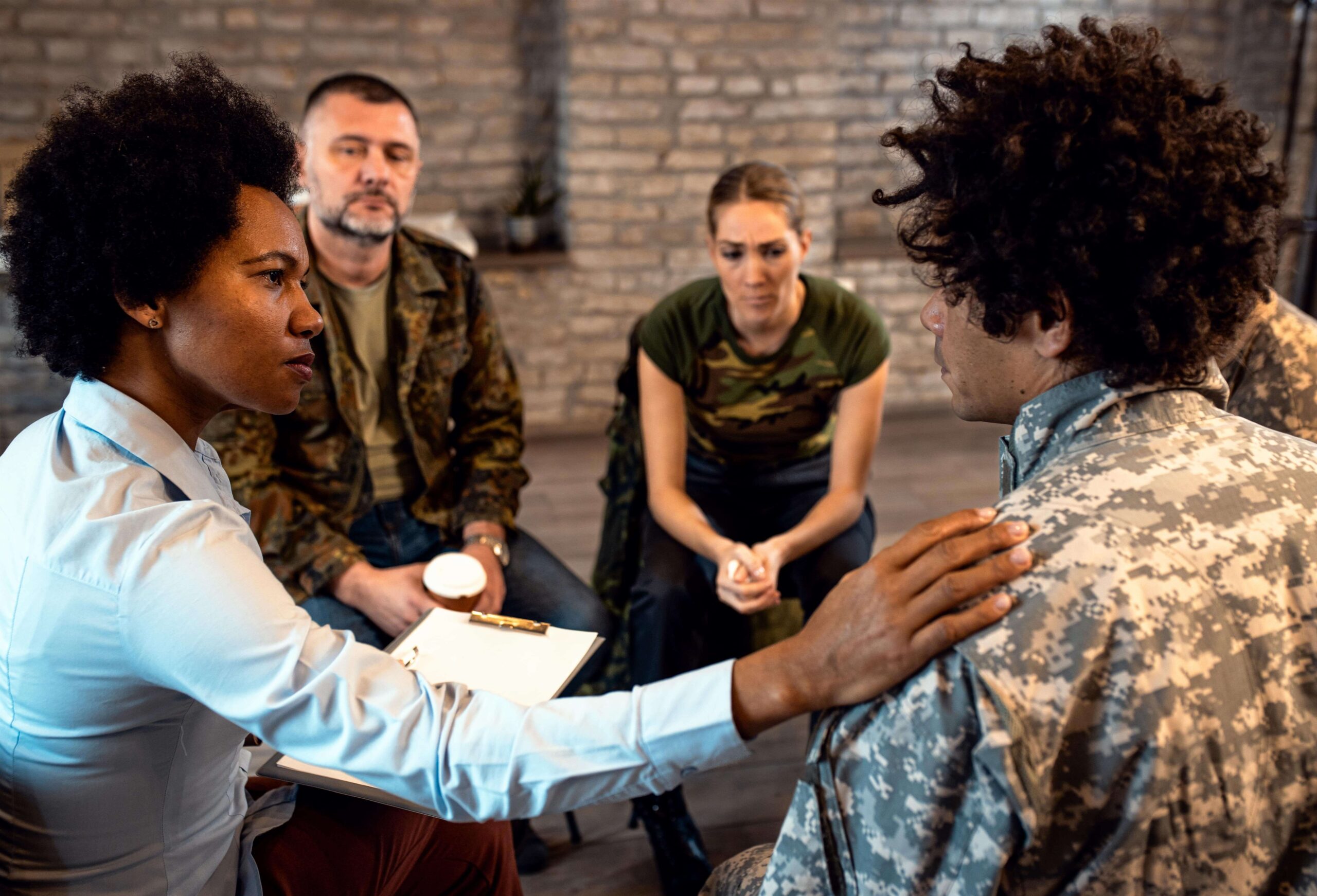For those who have served in the military, the transition to civilian life can be particularly challenging, and many veterans struggle with addiction as a result. However, the power of supportive communities cannot be underestimated in the journey to recovery.
Understanding The Link Between Veterans and Addiction
Many veterans experience physical and psychological trauma during their service, which can lead to post-traumatic stress disorder (PTSD) and other mental health issues. In an attempt to cope with these challenges, some turn to substances like alcohol and drugs, which can lead to addiction.
According to the U.S. Department of Veterans Affairs, it is estimated that about 10% of veterans who served in the Iraq and Afghanistan wars suffer from substance use disorder. A study published in JAMA Network Open found that veterans are more likely to be prescribed opioids for pain management, which can increase the risk of opioid addiction. Additionally, veterans with PTSD have a significantly increased risk of opioid overdose.
Unfortunately, many veterans face barriers to seeking treatment for substance use disorders, including stigma, lack of access to specialized care, and insufficient support systems. The good news is studies have shown that peer support and community-based programs can significantly improve outcomes for veterans in addiction recovery.
Different Types of Supportive Communities
Supportive communities are invaluable in the recovery process for veterans battling addiction. These communities can take various forms, including:
- Veterans Support Groups. These groups are designed to cater to veterans’ unique needs and experiences. Sharing their struggles with peers who have had similar experiences can foster a sense of camaraderie and understanding. Hoosier Veterans Assistance Foundation (HVAF) offers support and housing assistance to veterans experiencing homelessness. They may also provide resources and referrals to support groups and addiction recovery programs.
- Nonprofit Organizations. Many nonprofit organizations focus on helping veterans recover from addiction. These organizations provide access to resources, counseling, and support, often at little to no cost. Volunteers of America Indiana offers various services, including addiction treatment, mental health support, and housing assistance for veterans. The Indiana Addiction Hotline can connect individuals, including veterans, with addiction treatment and recovery resources in the state.
- Family and Friends. The support of loved ones can be a cornerstone of a veteran’s recovery. Understanding, empathy, and encouragement from family and friends can make a substantial difference.
- Faith-Based Communities. For veterans who find solace in their faith, religious communities can be an essential source of support. Many churches, synagogues, mosques, and temples have programs tailored to addiction recovery.
Benefits of Supportive Communities
Supportive communities offer several critical benefits for veterans in addiction recovery, including:
- Shared Experiences:
- Veterans in these communities often share similar military backgrounds and experiences, such as deployments, combat situations, and the challenges of military life. This shared history fosters a strong sense of camaraderie and understanding among members.
- The connection formed through shared experiences can be a powerful motivator in the recovery process. Veterans can relate to one another’s struggles, making it easier to open up about their challenges and seek support.
- Accountability:
- Supportive communities emphasize personal responsibility and accountability. Members hold each other accountable for their actions and decisions, which is essential in maintaining a commitment to recovery.
- Knowing that others are watching out for them and expecting progress can be a powerful deterrent against relapsing. It creates a sense of obligation to oneself and the community.
- Access to Resources:
- Supportive communities often act as gateways to essential resources for veterans in addiction recovery. These resources can include access to professional counseling, therapy, and rehabilitation programs.
- By providing access to these resources, these communities play a crucial role in addressing the underlying issues that contribute to addiction. This holistic approach is key to successful recovery.
- Reducing Stigma:
- Supportive communities actively work to reduce the stigma associated with addiction and seeking help. They create an environment where veterans feel comfortable discussing their struggles openly without fear of judgment.
- This reduction of stigma can have a profound impact on encouraging veterans to seek assistance. It normalizes the idea that reaching out for help is a sign of strength, not weakness.
- Building Resilience:
- Supportive communities teach veterans essential resilience and coping skills. These skills are crucial for maintaining long-term sobriety and effectively dealing with life’s challenges.
- Through shared experiences, accountability, and access to resources, veterans in these communities learn to develop the emotional and psychological tools necessary to face adversity and stay on the path of recovery.
Addiction recovery is a challenging and ongoing process for anyone, but it can be even more complex for veterans who have experienced the trauma of military service. Supportive communities are vital in helping veterans on their path to recovery, providing understanding, resources, and a sense of belonging. By fostering an environment of support and empathy, these communities contribute significantly to the success of veterans’ addiction recovery journeys. As a society, it is our responsibility to continue to support and invest in these communities, ensuring that our veterans receive the care and assistance they need to overcome addiction and lead healthier, more fulfilling lives. Contact us today to learn more about TriCare, our addiction treatment program for veterans and military personnel.


 Verify Insurance
Verify Insurance
 Toll Free Call
Toll Free Call